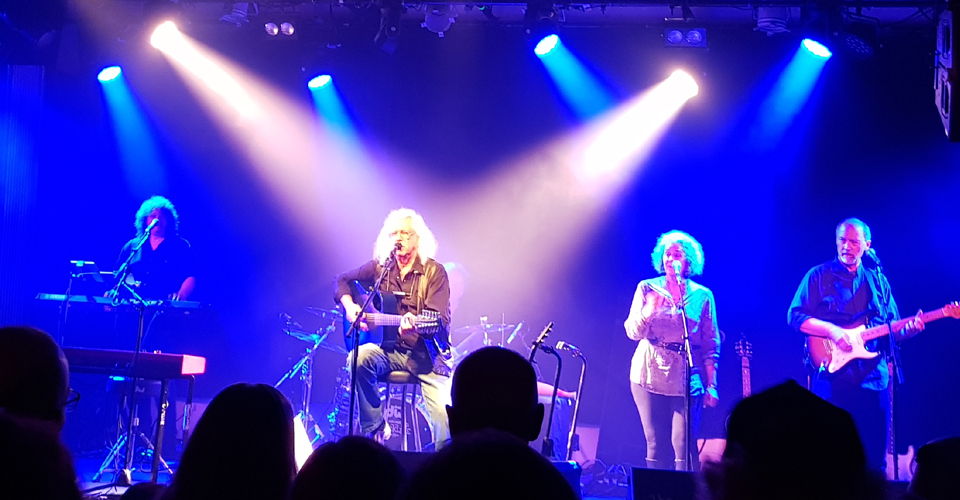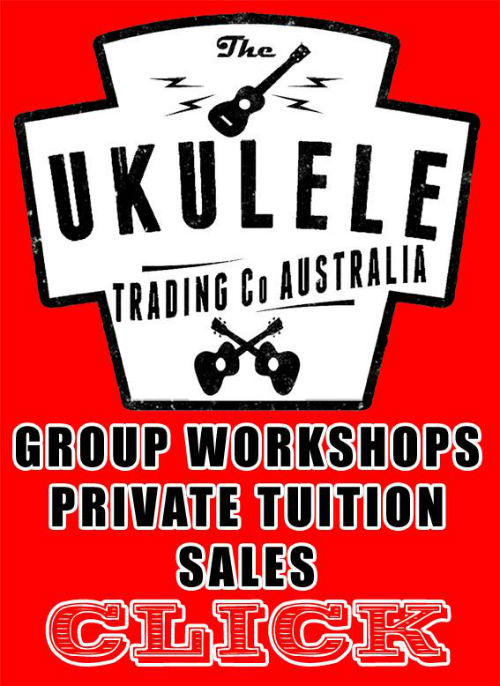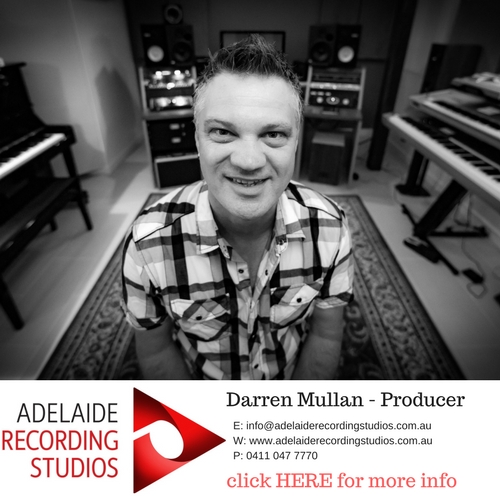Governor Hindmarsh Hotel, Wed 24 Apr.
Arlo Guthrie greets the audience with “Thank you for coming” as he takes his seat; the rest of his band join him on stage in front of a big Gov crowd. The show begins with a two-minute stab at The Motorcycle Song, a number that most folks know.
He says that he “wanted to get that song out of the way, straight away,” and also reminds those present that tonight is a celebration of the 50th anniversary of the Alice’s Restaurant film being released. Everyone feels just that little bit older. The subdued Darkest Hour is next, from 1976’s Amigo album, featuring some fabulous Guthrie harmonica playing. He introduces the band; long-time collaborators Carol Ide (percussion and vocals), her husband Steve (guitars) and Terry A La Berry (drums) are joined by Guthrie’s son Abe on keyboards to complete the line-up.
He plays Ukulele Lady and speaks fondly of Hawaii and tells tales of his friendships with musicians from that part of the world. In keeping with the theme, the band presents the simple but spellbinding instrumental, Haleiwa Farewell. The wistful In Times Like These follows, augmented by some breezy harmonies. As the concert progresses Guthrie announces that his recent gigs have taken their toll on his voice, but it is now perfectly suited to singing the blues. He delivers the standard St. James Infirmary (Blues), which features some decent blues guitar, along with Leadbelly’s Alabama Bound. Bob Dylan’s dramatic 1965 Gates Of Eden is next in line, recorded by Guthrie some eight years later. The set finishes with the upbeat Ride ‘Til the Morning Comes.
The second stanza sees Guthrie return to the stage, without the band initially (except for the shadowy form of Abe in the background), and the audience, perhaps, has a suspicion of what is to come. Sure enough, the familiar chord-pattern begins and the sound of Alice’s Restaurant Massacree fills the air. For the next 18 minutes Guthrie recites, sings and plays his most-famous work, accompanied by the singalong crowd where appropriate. After the song, Guthrie quips “If I ever would have imagined that song would be so popular… I would have made it a helluva lot shorter!”
The remainder of this shorter set comprises Coming Into Los Angeles, seen and heard by the whole world in 1970’s Woodstock, allowing both electric guitar and keyboards room to flourish. Guthrie moves to keyboards for All Over The World, and the second-most expected song of the evening, The City Of New Orleans. Rapturous applause greets the conclusion of the song, but it is also the last of the set. Almost. Guthrie says that it’s the end of the show, but then announces that there will be one more song. It’s a real treat. Guthrie has put his father Woody’s words to music, and My Peace might just be the most moving segment of the entire evening.
Guthrie stands and, with the rest of his musical companions, waves goodbye to his fans and disappears into the darkness. This has been a great performance, featuring an excellently curated setlist, and punters are heading home happy. Probably while humming the refrain from Alice’s Restaurant.
by David Robinson
4 Stars
Image courtesy of David Robinson
Setlist
First Set
- The Motorcycle Song
- Darkest Hour
- Ukulele Lady
- Haleiwa Farewell
- In Times Like These
- St. James Infirmary (Blues)
- Alabama Bound
- Gates Of Eden
- Ride ‘Til the Morning Comes
Second Set
- Alice’s Restaurant Massacree
- Coming Into Los Angeles
- All Over The World
- The City Of New Orleans
- My Peace
The Clothesline Rating...
David Robinson
Assured, road-worn and very enjoyable.




